Americans plan to pay close attention to Election Day 2020 results as they roll in. Roughly half of U.S. adults (48%) say they will follow Election Day results very closely, with another 32% who will do so fairly closely. A mere 6% plan to follow not at all closely.
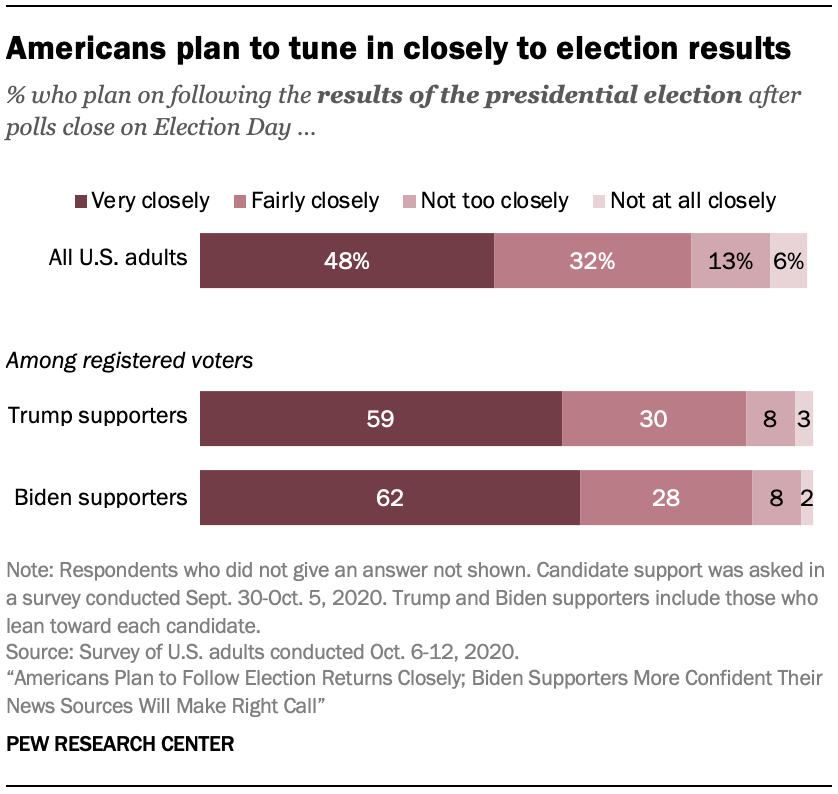
Registered voters supporting each of the two candidates plan to follow the results very closely. About six-in-ten Joe Biden supporters (62%) and Donald Trump supporters (59%) intend to follow the election results very closely.
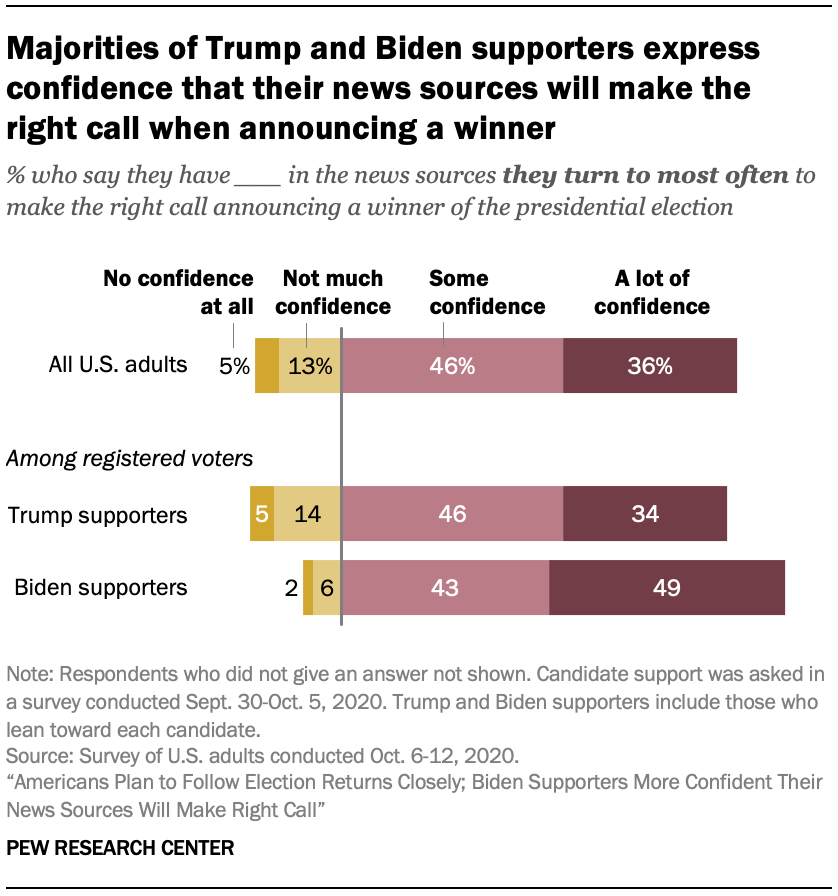
Americans also express a good deal of confidence in the news sources they turn to most to make the right call when announcing the winner. The vast majority of U.S. adults (82%) have at least some confidence that their main news sources will make the right call. That breaks down to 36% who say they have a lot of confidence in the sources they turn to most, while another 46% have some confidence.
Voters who support Biden express greater confidence than supporters of Trump, though majorities of both are more confident than not. About half (49%) of Biden supporters have a lot of confidence in their main news sources to make the right call. That figure drops to 34% among registered voters who support Trump. Those who support Trump are also about twice as likely as Biden supporters to say they have not much or no confidence: 20% vs. 8%.
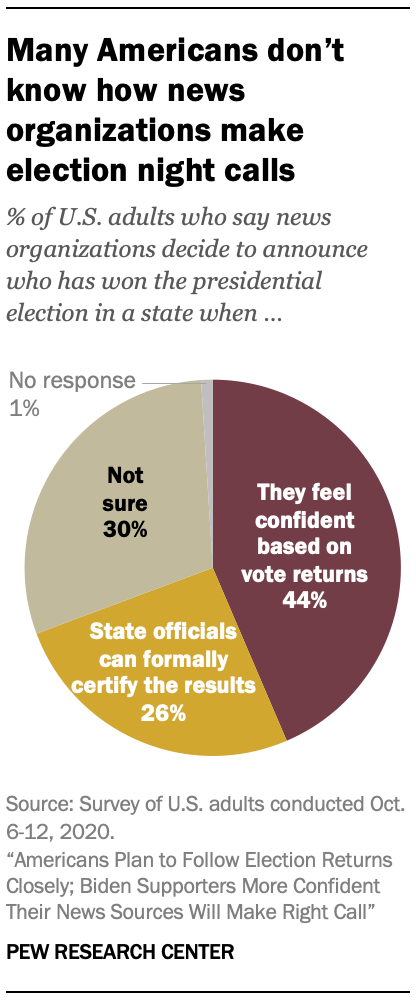
At the same time, though, many Americans do not have a great understanding of how news outlets make those calls. When asked which best describes how news organizations decide to announce who has won the presidential election in a state, 44% of adults correctly answered that the organizations do so when they feel confident based on vote returns and other information. A quarter (26%) incorrectly think it is when state officials are ready to formally certify the results after counting ballots (a process that often does not occur until December), and 30% say they are not sure.
There are no significant differences between Trump and Biden supporters giving the correct answer to this question.
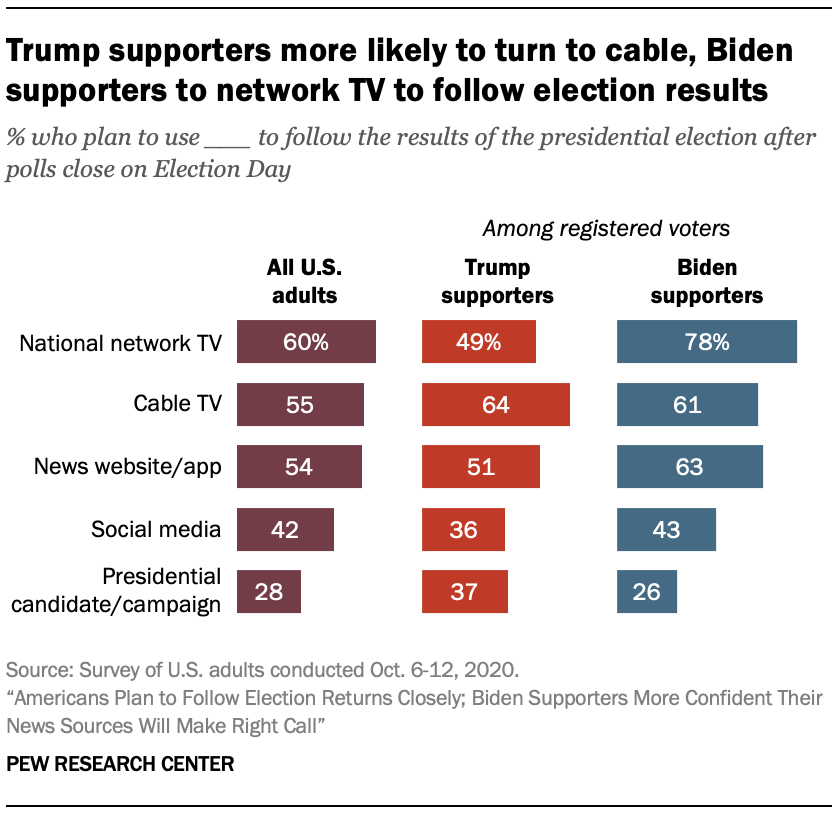
When it comes to where Americans plan to follow election night returns, a wide mix of pathways emerge – with many Americans planning to use multiple methods over the course of the night.
Overall, the largest segment of U.S. adults (60%) say they plan to follow the election results on national network TV (such as ABC, CBS, NBC or PBS). Close behind are cable TV (55%) and news websites and apps (54%). Another 42% plan to use social media, while 28% say they will turn to a presidential candidate or campaign for the results.
About three-quarters of U.S. adults say they will use two or more of these sources (74%). A slightly higher share of Biden supporters (84%) than Trump supporters (74%) say they will use two or more news sources.
A number of viewing differences emerge between Trump and Biden supporters. Fully 78% of registered voters supporting Biden plan to turn to network TV. Far fewer Trump supporters (49%) plan to do the same. Biden supporters are also more likely to say news websites and apps will be in their mix: 63% vs. 51%. In contrast, Trump supporters look in greater numbers to a presidential candidate or their campaign. Roughly four-in-ten Trump supporters (37%) say they will follow results this way, compared with 26% of Biden supporters.
Partisans largely agree on importance of fact-checking role of the news media but not on treatment of offensive statements
While in many ways the norms of politics and campaigns seem to have shifted since the 2016 presidential election, with deep partisan divisions today over many aspects of conducting elections, certain views about the news media’s role have held steady – and with similar areas of partisan agreement and disagreement.
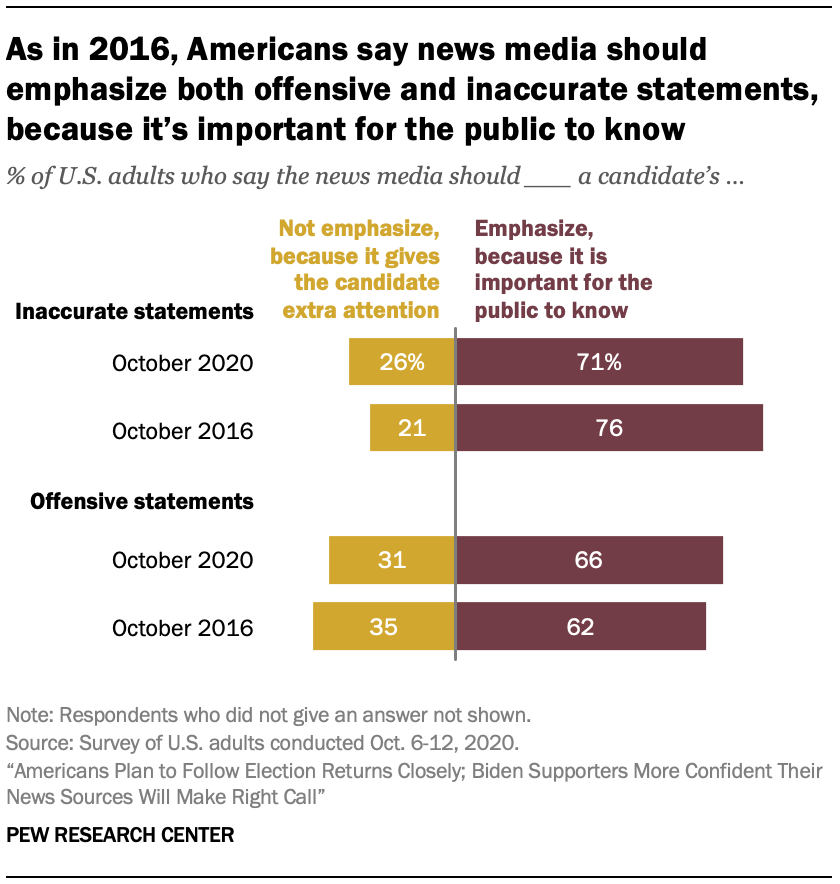
One set of questions asked about how much emphasis news organizations should place on certain types of candidate statements.
About seven-in-ten U.S. adults (71%) agree that if a candidate makes an inaccurate statement, the news media should emphasize it so the public knows it is inaccurate. That is nearly identical to the sentiment expressed heading into the final stretch of the 2016 election, when 76% said the media should emphasize such statements.
Most Americans also think the news media should call out offensive statements made by a candidate: 66% say they should emphasize such statements compared with 31% who say they should not. Again, these results are consistent with views in 2016.
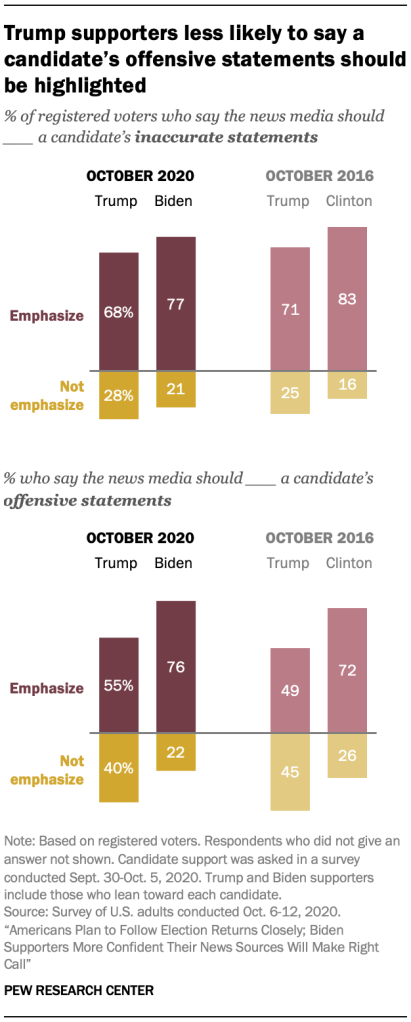
Among registered voters, majorities of both Biden and Trump supporters say the news media should emphasize inaccurate statements, with Biden supporters somewhat outpacing Trump supporters: 77% to 68%, respectively.
When it comes to offensive statements, however, there is more disagreement between Biden and Trump supporters. While about three-quarters of registered voters who support Biden (76%) say the news media should call out such statements, fewer Trump supporters (55%) feel this way.
Views on both of these questions are strikingly consistent with 2016. Then, strong majorities of both Hillary Clinton and Trump supporters (among registered voters) said it was important to emphasize inaccurate statements (83% and 71%, respectively). But Trump supporters were more divided than Clinton supporters on whether the news media should emphasize offensive statements, with 49% saying they should and 45% saying they should not.
More broadly, about two-thirds of U.S. adults say that correcting inaccurate statements made by a candidate is a major responsibility of the news media. Another 21% say it is a minor responsibility, while only 12% say it is not a responsibility at all.
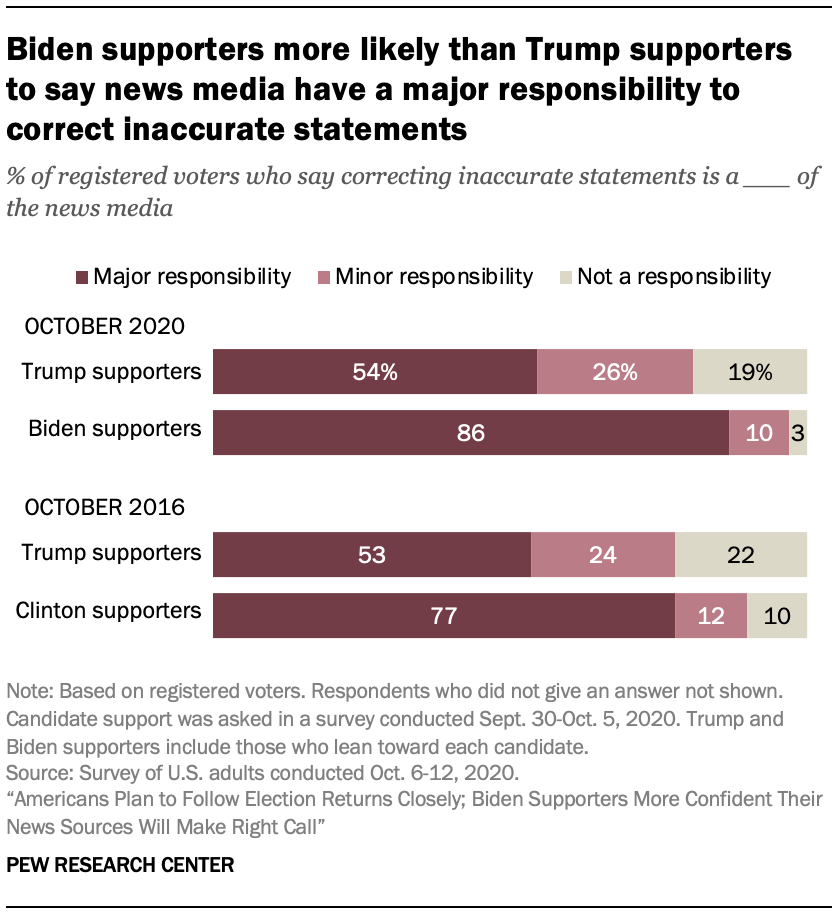
Fully 86% of Biden supporters describe this as a major responsibility of the news media, far outpacing the roughly half (54%) of Trump supporters who feel this way. Another 26% of Trump supporters call this a minor responsibility, while 19% say it is not a responsibility at all.
These figures are strikingly consistent with 2016. Heading into that election, 62% of U.S. adults said correcting inaccurate statements was a major responsibility of the news media, with a similarly large difference between Clinton and Trump supporters.




